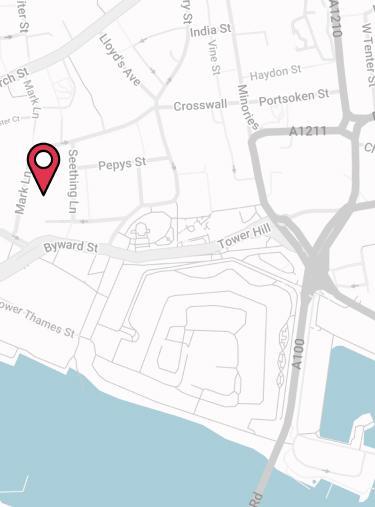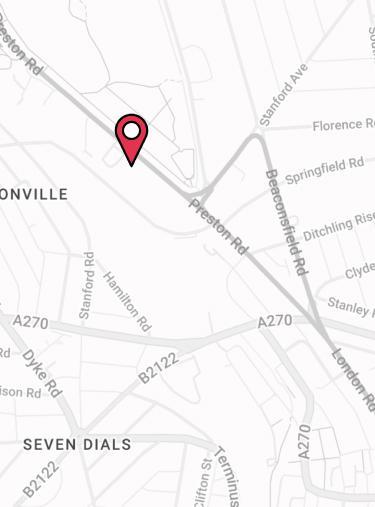
You never know when you might need some time off work. Whether this is due to an injury you’ve sustained or an illness you’ve developed, taking time off could result in a loss of income. And as an adult with bills to pay, financial hardship is a worry for many.
This is why people turn to Permanent Health Insurance, as a way to protect their income in difficult times. If you’re considering buying a policy, here’s all you need to know about this type of protection.
What Is Permanent Health Insurance?
Permanent Health Insurance (PHI) is most commonly known as Income Protection. This term is the technical industry name for the product and it’s not to be confused with Private Health Insurance.
PHI pays out a tax-free monthly benefit if you’re unable to work because of injury or illness. The payments are there to help replace any income you lose as a result of not working.
A policy can:
- Enable you to cover your core outgoings (e.g. mortgage payments, utility bills, and weekly grocery shops)
- Cover up to 70% of your gross annual salary
- Pay out after as little as one week of illness or injury
- Protect your income until your expected retirement age.
SPECIALIST TIP 🧐
According to consumer group Which? Income Protection is the one policy every working adult should consider.
Why Is PHI Insurance Important?
Imagine you’re unable to go to work like normal because of an illness or injury… What would happen to your finances? How would you continue to pay your bills? Permanent Health Insurance offers a financial safety net in times of hardship, allowing you to focus on recovery and returning to work.
You never know what might happen in the future, so being prepared for any eventuality is key. You may not ever need to claim on your policy, but it’s a lifesaver if you do need long-term leave.

Not everyone is lucky enough to have generous sick pay or a safety net of savings to rely on during tough times.
That’s where Permanent Health Insurance becomes a lifeline, providing crucial financial support when it’s needed most
Alex Weir
Independent Health & Protection Specialist
How Does Permanent Health Insurance Work?
Should you suffer an injury or fall ill and be unable to work, Permanent Health Insurance provides you with a monthly benefit to replace your income.
When buying a policy, you’ll choose:
- Your level of cover
- The length of your policy (either long-term or short-term)
- A deferred period.
You will pay a premium, either monthly or annually. If you then need time off work for an illness / injury listed on your policy, you can make a claim.
If your claim is successful, you will have to wait out your deferred period. As soon as this passes, the insurer pays out a monthly benefit to you. These payments are tax free.
You’ll then continue to receive the payments until:
- You’re well enough to go back to work
- The policy ends
- Or you retire.
What Does Permanent Health Insurance Cover?
PHI Income Protection typically covers you if you’re unable to work because of:
- Accidents or bodily injuries
- Ill health.
It can cover a range of conditions, including different types of cancer, mental health disorders, and even musculoskeletal issues.
When setting up your policy, opt for own occupation cover, as this enables you to make a claim if you’re incapable of carrying out your specific job duties.
What Doesn’t Permanent Health Insurance Cover?
Like any type of insurance policy, Permanent Health Insurance has some standard exclusions. These apply to everyone, regardless of age, previous health, and smoker status.
Most policies will not pay out for illnesses or injuries sustained:
- During criminal activity
- From illegal / illicit drug use, substance abuse or alcohol misuse
- During foreign travel to areas of active internal conflict, high terrorism risk, political instability or countries the Foreign and Commonwealth Office (FCO) has advised against visiting.
Aside from these general exclusions, there are very few other limitations. Insurers base your coverage on your medical history.
Does It Cover Pre-Existing Conditions?
When you apply for Permanent Health Insurance, insurers typically ask you to complete a questionnaire about your health.
If you have a pre-existing condition, such as diabetes, asthma or high cholesterol, the insurer will adjust your cover accordingly. They may decide to:
- Cover the condition on standard terms with no increased premium
- Cover the condition for a higher monthly cost
- Exclude the condition from the policy.
So, it’s not impossible to get Permanent Health Insurance if you have a pre-existing condition. But it’s always best to speak to a specialist adviser when buying a policy with pre-existing health concerns. We have direct access to the underwriters at every UK insurer, meaning we can find you the right coverage for your needs.
Get in touch with us by calling 02084327333 or email help@drewberry.co.uk.
Income Protection Client Stories
Do I Need Permanent Health Insurance?
Whether you need Permanent Health Insurance is a personal decision. It’s not a mandatory insurance policy. It just depends on your unique circumstances. For example, you might consider a policy if your company sick pay policy isn’t sufficient or you don’t have any emergency savings.
When considering a policy, think about what would happen if you were unable to work and earn a regular income. How would you cope financially?
Assessing Your Risk Of Incapacity
No one likes to think about the possibility of being unable to work due to accident or sickness, however, the risk is much higher than you might think. In April 2024, there were 2.83 million people out of work because of long-term sickness.
It’s not a rare occurrence, and it could happen to anyone. If you become too sick to work, how would your finances fair?
What About Other Safety Nets?
It’s essential to consider how you would cope in the long-term if you’re unable to earn a living.
Your Savings
Do you have any savings to fall back on? While some are fortunate to have emergency funds to dip into, the reality is that most people don’t have sufficient savings. In fact, 1 in 5 people told us they wouldn’t be able to survive longer than a week on their savings.
In the event of long-term sickness or injury, it’s likely any savings you have will dwindle fast. And considering the average household spends around £628 a week, losing any of your income could be a serious problem for your household.
Employer Sick Pay
Does your employer provide long-term sick pay? Or any sick pay at all? The legal statutory minimum for employers to pay staff if too sick to work is £118.75 a week. Again, this is not sufficient to cover average UK household expenditure.
What about if you’re not employed in a traditional sense? For example, if you’re self-employed, a contractor or director operating through a limited company. In such scenarios, there isn’t a standard employer to offer sick pay.
If this sounds like your employment status, you’re likely to experience financial hardship to a much higher degree if you can’t work. This makes Permanent Health Insurance all the more important.
State Benefits
Alongside Statutory Sick Pay, the government also offers Employment and Support Allowance (ESA). However, many are under the illusion that state benefits are enough to cover a person’s living costs. ESA pays out up to £92.05 a week if you’re aged 25 or over.
Is this enough to cover your outgoings? While state benefits are available depending on your reason of incapacity, the sums provided rarely equal what you earn working full time.
All the above are important factors to consider when deciding if Permanent Health Insurance is worth it for your circumstances.
Why Mrs Mummy Took Out PHI Insurance
Mrs Mummypenny is someone who knows just how life-changing Permanent Health Cover can be. By putting a financial safety net in place, she’s safeguarded her family’s future against the unexpected. Her journey is a powerful reminder of why PHI isn’t just a policy—it’s peace of mind when you need it most.
Factors To Consider When Buying Permanent Health Insurance
There are several policy factors to think about when buying Permanent Health Insurance. Some are policy related, while others are personal factors.
The following can impact the cost of your cover:
- The deferred period
This is the length of time you’d be willing to wait out before your payments begin. Deferred periods can be between 1 day and up to 2 years (104 weeks). If you have enough savings to cover a month of living costs, a deferred period of 4 weeks would be the best option - Policy cease age
This refers to your age at the end of the policy. You should align this with your expected retirement age (e.g. 60 or 65). The older the cease age, the more the policy costs; but you’ll be protected for longer - Level of cover
Also known as “sum assured”. This is the amount an insurer will pay out in a successful claim. You can cover between 50% and 70% of your earnings. The more you protect, the more you pay. The amount of cover you’ll need depends on your unique situation.
You’ll also need to consider:
- Short-term or long-term protection
When setting up a policy, you’ll choose either short-term or long-term cover. Short-term cover pays out for a maximum of 1, 2 or 5 years per claim. Long-term insurance typically pays out until your retirement age. The latter ensures your income is protected for as long as possible - Indexation
Choosing to index link your policy means your benefit amount aligns with any changes in inflation. The value of your policy doesn’t depreciate over time. Your premiums also change accordingly to reflect an increase in benefit.
ADVISER TIP 🧐
We recommend long-term cover if your budget allows, as it ensures you can cover your outgoings if you happen to never work again due to accident or sickness.
The Premium Type
When setting up a Permanent Health Insurance policy, you have three premium options:
- Reviewable premiums
This type of premium can be reviewed by the insurer as they see fit. Your premiums may rise to cover an increase in claims or changing economic factors, for example. Reviewable premiums tend to start out cheaper but may end up costly over the policy lifetime - Age-banded premiums
The same applies to age-banded premiums. Price increases are related to your age and the higher risk of accident or sickness as you get older. These premiums can only increase by a preset amount stated on your policy - Guaranteed premiums
We recommend guaranteed premiums, as these remain fixed for the policy’s lifetime. It may appear expensive initially, but these premiums work out more affordable over time since they cannot be changed. That said, guaranteed premiums aren’t suitable for everyone. Manual workers, for example, tend to get better rates if they choose age-banded premiums, even though these do rise with age.
Make sure to consider all of your options for your personal situation before deciding which premium type is best for you.
Own Occupation Cover
It’s important to get Permanent Health Insurance that covers you in your own occupation. There are other incapacity definitions (suited occupation and any occupation), but own occupation is highly recommended. It enables you to claim as long as your health prevents you from doing your specific job.
It’s the easiest incapacity definition to claim on. Insurers typically use these definitions to determine how capable you are of working and the likelihood of a successful claim. We always suggest own occupation cover to clients, as it provides essential financial support when you need it most.

The moment you become unable to carry out your job duties, you’re eligible to claim under own occupation cover. Other definitions make it harder. For example, if you had any occupation cover, you’re likely to be deemed capable of work outside of your current occupation.
Alex Weir
Independent Health & Protection Specialist
How Do I Make a Claim?
If you become too unwell to work or suffer an injury, here’s how making a claim works:
- You need time off work due to accident or sickness
- Let your insurer know that you may be out of work longer than your deferred period
- Provide a completed claims form and evidence of your condition
- Wait for confirmation of your claim from the insurer
- Begin receiving payments once your deferred period has passed
- Payments continue until you either return to work, reach the policy cease age, or retire.
Making a claim has become easier over the years, with many insurers allowing you to submit a claims form online.
If you need to make a claim, our specialist advisers are here to help. We’ll ensure your claims form is completed and your claim is dealt with smoothly and quickly.
Neil’s Cancer Claim With British Friendly
Neil is a Drewberry client who bought British Friendly Permanent Health Insurance Cover. He had cover for 4 years before he needed the policy.
It started with a bout of stomach pains. After visiting his GP and having some tests, consultants diagnosed Neil with stage 2 bowel cancer. He was unable to work while he had surgery and recovered, so made a successful claim with British Friendly.
Here’s the difference Permanent Health Insurance made to his life.
🤕 Read More About Neil’s Experience
Which Insurers Pay the Most Claims?
Most people understandably want to choose the insurer that’s most likely to pay out when they need it.
However, it’s actually fairly hard to distinguish one provider from another in this area. Payout rates across the industry are not only higher than many people assume, but are also fairly uniform.
For example, as shown in the table below, most insurers pay more than 90% of all Permanent Health Insurance claims they receive.
Insurer | 2022 | 2023 | 2024 |
|---|---|---|---|
Zurich | 85% | N/A | 95.8% |
Vitality | 96.5% | 95.4% | 91.9% |
Cirencester Friendly | 95.4% | 95.8% | 95.8% |
Holloway Friendly | 93.4% | 86% | 88.3% |
British Friendly | 90% | 89% | 86% |
Liverpool Victoria | 92% | 92% | 90% |
The Exeter | 92% | 96% | 93% |
Aviva | 92.5% | 90.1% | 92% |
Legal & General | 82.2% | 80% | 84% |
How Much Does A Permanent Health Insurance Policy Cost?
The cost of Permanent Health Insurance depends on a variety of factors; some of which are personal and others are related to the policy. To give you a rough estimate of how much a policy will cost you a month, we’ve got some quotes to illustrate.
These are based on:
- Policyholder is a healthy 35-year-old non-smoker
- Works in an office-based role
- Needs £2,000 of cover
- Guaranteed premiums
- Wants a long-term policy with a cease age of 65.
Provider
The insurers providing Permanent Health Insurance tend to have different premiums, even for a similar level of cover. This is because each provider has its own appetite for risk, and charges based on this.
Different Providers | |
|---|---|

| 
|
£30.62 a month | £42.63 a month |
The Deferred Period
The longer your deferred period, the lower your premiums. Based on the above policy options, here are the costs of different deferred periods with insurer Aviva.
| Length Of Deferred Period | Monthly Cost Of Policy |
|---|---|
| 4 weeks | £46.31 |
| 8 weeks | £37.60 |
| 13 weeks | £24.62 |
Short Term Vs Long Term Cover
How long a policy lasts impacts the cost of your cover. Short-term Permanent Health Insurance costs less than a long-term plan. However, it’s important to remember short-term policies are exactly that—short. It won’t provide cover for a long period of time.
Here are some cost examples between short-term and long-term policies.
| Level Of Cover | Monthly Cost |
|---|---|
| 2 years | £17.96 |
| To policy cease age (65) | £30.62 |
Your Age
As you get older, the likelihood of becoming unwell or suffering an injury also increases. Insurers have to accommodate this and the price often reflects it. Older applicants will pay higher premiums. So, the earlier you buy a policy, the lower the initial cost.
Here are some examples of policyholders of different ages:
| Age | Monthly Cost |
|---|---|
| 35 | £30.62 |
| 40 | £39.56 |
| 45 | £60.30 |
Smoker Status
If you’re a smoker, your health is more commonly at risk than a non-smoker. Most insurers (not every single one, though) ask for higher premiums if you smoke. This is to cover the additional risks you’re exposed to.
Below are example monthly costs from Zurich based on the previously used policy options.
| Smoker Vs Non-Smoker | |
|---|---|
| 🚬 | 🚭 |
| £91.64 | £71.33 |
Your Health
Your health plays a part in the cost of Permanent Health Insurance. Some insurers may request higher premiums if you have a pre-existing condition or a prevalent medical history, for example. It depends on the insurer, though, and the medical conditions.
Your Occupation
What you do for work also plays a part. Some jobs are naturally riskier than others, so insurers increase prices to cover this extra risk. Manual workers, such as scaffolders and builders, are more likely to suffer an accident on the job compared to a low-risk office role.
Income Protection Product Reviews
Compare Best UK Permanent Health Insurance Companies In 2026
As an independent broker, we work with all the top UK Permanent Health Insurance providers to find you the right cover for your needs.
Different insurers prefer different risks. For example, some are more competitive for higher-risk / manual occupations, while others are better if you want a longer deferred period.
Below is a list of the top UK Permanent Health Insurance insurers we work with, including provider reviews.
- Aviva
- British Friendly
- Cirencester Friendly
- Holloway Friendly
- Legal & General
- Liverpool Victoria (LV=)
- Royal London
- Shepherds Friendly
- The Exeter
- Vitality
- Zurich.
There’s a lot of competition in the market, so there are a range of insurers to choose from. As a result, it’s important to compare Permanent Health Insurance quotes from every provider to find the best deal.
If you need help give us a call on 02084327333 or email help@drewberry.co.uk.
Additional Benefits And Support Services
Another important area of comparison is the additional benefits on offer from insurers. These are services available, almost always for free, alongside Permanent Health Insurance.
Insurers offer these benefits with your wellness in mind. They’re there to help reduce the chances of you needing to claim or to speed up your recovery if you do fall ill.
Depending on your insurer, additional benefits may include:
- Remote GP appointments
- Medical helplines, offering convenient telephone access to trained doctors and nurses for advice on minor medical ailments
- A fixed number of physiotherapy sessions per year (either online or in person)
- A fixed number of counselling / cognitive behavioural therapy sessions per year (either online or in person)
- High street discounts
- Discounts on gym memberships / fitness trackers
- Hospitalisation benefit, paying out a cash benefit each day you spend as an inpatient in hospital
- Second medical opinion service, providing access to world-leading medical specialists to offer a second opinion on a diagnosis or course of treatment.
Many such services are available not only to you as the policyholder but also to your immediate family, such as your spouse / civil partner or dependent children.
Frequently Asked Questions...
Is Permanent Health Cover The Same As Income Protection?
Yes, Permanent Health Insurance is just technical industry jargon. It’s exactly the same as what many people know as Income Protection or Disability Insurance. Essentially, they all do the same thing, just with different names.
Will It Cover Permanent Disability / Illness?
If you opt for long-term PHI — which pays out for as long as you need it, right up until you retire — then yes, it covers permanent disability.
However, if you choose a short-term plan, it will only pay out for a maximum of 1, 2 or 5 years per claim. You’re entitled to a payout for as many periods of 1, 2 or 5 years as you need, providing it’s for different conditions each time. It won’t pay out long-term if you were so incapacitated you could never work again.
Is It A Taxable P11D Benefit In Kind?
No, HMRC does not consider any income replacement insurance as a P11D / benefit in kind.
P11D benefits are those which employers offer and you must pay tax on as a result. The majority of our clients pay for PHI as individuals, from their personal bank accounts, and so there’s no employer / employee relationship to worry about.
What’s more, when you pay for it personally, the insurer pays claims tax-free. This is because you’ve already paid income tax and National Insurance contributions on the money used to pay premiums.
Group Income Protection / Executive Income Protection
However, if you’re enrolled in a workplace Group Income Protection scheme paid for by your employer, or you opt for Executive Income Protection, the answer is slightly different.
You won’t have to pay any additional tax as a result of having cover, but you do have to pay tax on the benefit.
When the insurer pays out, it first pays the benefit to the company. It’s the company’s responsibility to distribute it from there, as it would normally remunerate its employees, such as via PAYE. It’s at this point HMRC deducts the appropriate taxes from the benefit.
What's The Difference Between Permanent Health Cover And Critical Illness Cover?
There are a few key differences between Critical Illness Cover and Permanent Health Insurance. It’s worth highlighting them, so you’ve got the full picture before taking out either policy.
Firstly, PHI pays out a regular monthly income if you can’t work through illness or injury. Long-term policies pay out as many times as you need to for as long as you need to over the life of the policy.
Critical Illness Cover, on the other hand, pays out a single lump sum on diagnosis of a critical illness. Once you claim, the policy ends and you won’t get another payout, even if you develop another critical illness later on.
Moreover, Critical Illness Cover only pays out on diagnosis of a set list of critical illnesses in the policy’s terms. The most common conditions insurers pay out for are cancer, heart attacks and strokes.
With Critical Illness Cover, you must have one of the illnesses in the policy terms, at the stipulated severity, to claim. Compare this to PHI, where any illness / injury that stops you working triggers the insurer to pay the benefit.
Compare Permanent Health Insurance Quotes & Get Specialist Advice
When arranging a Permanent Health Insurance policy, it’s best to speak with a specialist adviser to ensure you’re getting the cover you need. We can also explain any jargon, offer tailored advice, and provide recommendations for the right cover.
For more information or support with setting up a policy, contact us on 02084327333 or email help@drewberry.co.uk.
Why Speak to Us?
When it comes to protecting yourself and your finances, you deserve first-class service. Here’s why you should talk to us:
- There’s no fee for our service
- We’re an award-winning independent insurance broker, working with the leading UK insurers
- You’ll speak to a dedicated specialist from start to finish
- 4100 and growing independent client reviews rating us at 4.92 / 5
- Claims support when you need it most
- We’re authorised and regulated by the Financial Conduct Authority. Find us on the financial services register.
- Topics
- Income Protection
Contact Us
125-135 Preston Road
Brighton
BN1 6AF
Cookies
Drewberry™ uses cookies to offer you the best experience online. By continuing to use our website you agree to the use of cookies including for ad personalization.
If you would like to know more about cookies and how to manage them please view our privacy & cookie policy.






















